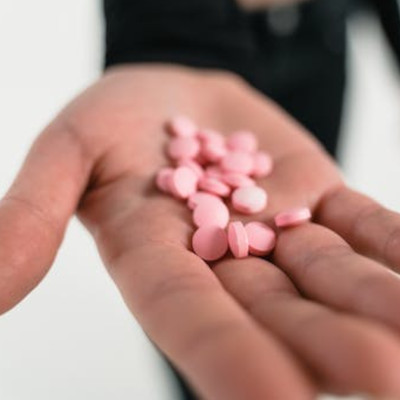
How Addictive Are Study Drugs?
Study drugs like Adderall and Ritalin are widely used to enhance focus and energy, but they carry significant risks, including addiction, health complications, and legal issues. While they may offer short-term benefits, healthier alternatives such as proper study techniques, balanced lifestyles, and academic support systems are safer and more sustainable ways to improve focus and productivity. Understanding the risks and benefits can help individuals make informed decisions about their use.
Study drugs, which are sometimes referred to as concentration tablets for studying, are certain substances that people use to enhance their focus, alertness, and cognitive performance. These drugs are commonly prescribed to treat conditions like ADHD (Attention Deficit Hyperactivity Disorder) but have also gained a great deal of popularity among students and professionals who are looking to improve their academic or work performance. From college campuses to high-pressure work environments, these drugs are often viewed as a shortcut to success.
While they might seem like a quick fix, it is important to remain responsible. The widespread misuse of these drugs raises a great deal of concerns about their safety, potential for addiction, and their impact on long-term health. Today, we will look into the prevalence, risks, and alternatives to study drugs to provide you with a more balanced perspective on their use.
Adderall Detox
Regain control of your life and safeguard your health, career, finances, and relationships with in-home stimulant detox . Elite Home Detox offers treatment plans that are customized to address your unique needs and goals. We bring appointments to you, making it simple to get the care you need to make a full and lasting recovery.
Book NowTable of Contents:
Types and Common Uses of Study Drugs
Study drugs can vary widely in their makeup and intended purposes. Some are prescription-based, while others are over-the-counter or more natural alternatives. Understanding all of the different types that are available can help you better determine their benefits and risks.
Prescription Stimulants
Prescription stimulants like Adderall, Ritalin, Concerta, and Vyvanse are commonly prescribed as prescription medication for energy and motivation. These drugs typically contain Dextroamphetamine, Lisdexamfetamine, or methylphenidate, which stimulate the central nervous system. They are highly effective in treating ADHD and narcolepsy by enhancing focus and reducing any impulsive behaviors.

Nootropics
Nootropic supplements, including drugs like Modafinil and Piracetam, are often marketed as “smart drugs.” They are most often used as focus drugs to improve cognitive performance. While their effectiveness in enhancing focus and memory is still being debated, their popularity continues to grow among those people who are looking to gain an edge in their academics or work.
Legal Alternatives
Legal options like caffeine and over-the-counter cognitive enhancers are more accessible and generally considered safer. While these alternatives might not provide the same level of focus as prescription stimulants, they are less likely to cause addiction or dangerous side effects.
The Prevalence of Study Drugs
The use of study drugs has seen a dramatic rise over the past decade [1]. This continues to be fueled by both increasing academic and workplace pressures. These substances, which were originally developed to treat medical conditions like ADHD and narcolepsy, have found their way into mainstream use as performance enhancers.
Historically, stimulants like Adderall and Ritalin gained a lot of popularity in the medical community for their ability to improve focus and reduce hyperactivity in patients diagnosed with ADHD. Over time, their effectiveness in enhancing cognitive performance led to a great deal of misuse, especially among students and professionals who wanted to gain an edge in their competitive environments.
In academic settings, the prevalence of study drug use is particularly concerning. Research suggests that approximately 10-15% of college students in the United States have used prescription stimulants like Adderall or Ritalin without a prescription [2],[3]. This trend is even more pronounced in institutions that are known for having very high academic standards. Similarly, professionals in demanding fields are increasingly turning to these drugs as a way to combat fatigue and maintain productivity during long work hours.
The normalization of study drug use, coupled with their availability through informal networks, has contributed to their widespread misuse [4]. This growing trend highlights the need for better awareness, stricter regulations, and alternative support systems to address the root causes of reliance on these substances.

Why Students Turn to Study Drugs
The motivations behind using study drugs vary but often stem from external pressures, such as:
Academic Pressure
In competitive academic environments, the pressure to excel can be overwhelming. Many students feel that using drugs to stay awake and focused gives them an advantage in managing heavy workloads, meeting deadlines, and preparing for exams.
Workplace Demands
The use of focus drugs is not limited to students. Professionals in high-pressure jobs also turn to stimulans to maintain energy and productivity, especially during long work hours.
Social Influences
Peer pressure and cultural attitudes also play a role. In some circles, using concentration tablets for studying is normalized, creating an environment where individuals feel compelled to use these substances to keep up.
Benefits of Study Drugs
Study drugs are popular for a reason. They can often offer noticeable short-term benefits when used correctly.
Enhanced Concentration and Focus
One of the most cited benefits of study drugs is their ability to enhance focus. Prescription stimulants like Vyvanse and Concerta can help individuals stay alert during long study sessions or difficult work projects.
Increased Alertness
By stimulating the central nervous system, these drugs increase alertness, helping users feel more awake and less fatigued [5].
Extended Wakefulness and Energy
For individuals with conditions like ADHD or narcolepsy, these drugs help regulate energy levels and improve wakefulness and alertness, making everyday tasks a lot more manageable. However, these benefits often come at a cost for those who don’t have a medical need for them.
Prescription and Regulations
Getting prescription stimulants involves meeting specific diagnostic criteria. Doctors prescribe medications like Adderall and Ritalin for legitimate medical conditions such as ADHD and narcolepsy. These prescriptions are very tightly regulated to prevent misuse. However, the availability of these drugs on the black-market has led to widespread non-prescribed use, which is now posing a lot of legal and ethical challenges.
Health Risks and Side Effects
While study drugs can provide short-term benefits, many people ask the question “are study drugs safe?” These medications often come with some significant risks that can’t be ignored.
Physical Health Risks
Using these drugs without medical supervision can lead to cardiovascular problems, sleep disruptions, and changes in appetite [6]. For instance, Lisdexamfetamine and methylphenidate can increase heart rate and blood pressure, leading to potential long-term health issues.
Mental Health Impact
The misuse of study drugs is linked to anxiety, depression, and the potential for dependency [7]. Regular use can alter brain chemistry, making it difficult for individuals to concentrate or feel motivated without these substances.
Legal and Academic Consequences
Using study drugs without a prescription is illegal and can result in severe consequences, including academic penalties or career setbacks. Schools and employers often have strict policies against the misuse of prescription medications.
Medical and Legal Framework
While study drugs like Adderall and Ritalin are essential for treating medical conditions, their misuse is proof of the need for stricter controls. Educational campaigns and better access to academic resources can reduce the pressure to use these substances for non-medical purposes.
Addressing the Myths and Misunderstandings
There are many misconceptions surrounding the use of study drugs. Some believe they are harmless or even necessary for success. However, these beliefs are not supported by any evidence. Study drugs can lead to dependency, and their benefits are often overstated leading people to believe that they are a safe and acceptable option.
Clarifying these myths and providing accurate information is very important in order to help people make more informed decisions. For instance, while nootropic supplements like Modafinil are often marketed as being safe, they still carry risks and should be used cautiously.
Effective Alternatives to Study Drugs
There are safer, healthier ways to enhance focus and academic performance without resorting to study drugs.
Study Skills and Techniques
Try out new study strategies like time management and active learning. This can significantly help improve your focus and memory retention. Developing personalized study routines is a much more sustainable and rewarding process than relying on focus drugs.
Lifestyle Approaches

Healthy habits like regular sleep, balanced nutrition, and exercise play an important role in maintaining your energy levels and focus. Stress management techniques like mindfulness and relaxation exercises can also help improve your academic and work performance in a much more natural way.
Academic and Health Support Resources
Many schools and workplaces offer support systems, including tutoring, academic counseling, and mental health services. These resources can give you customized solutions to help manage stress and improve your performance without the need for prescription medication for energy and motivation.
Finding the Right Approach to Focus and Success
While study drugs like Adderall, Ritalin, and nootropic supplements may seem like a quick fix for improving focus and productivity, they carry a great deal of significant risks. Dependency, health complications, and legal consequences outweigh the short-term benefits for most users.
Instead of turning to concentration tablets for studying, consider healthier alternatives like proper study techniques, lifestyle adjustments, and support systems. Tackline the root causes of academic and workplace pressures can create an environment where success is achieved without compromising either your health or ethics.
By developing better academic support systems and promoting responsible decision-making, we can reduce the reliance on study drugs and prioritize long-term health, well-being, and success.
Adderall Detox Program
Although Adderall is an invaluable part of ADHD treatment for many people, it is possible to become addicted to this prescription drug. Elite Home Detox can help you recover from stimulant addiction with our personalized treatment programs and discreet in-home appointments .
We work with you every step of the way to overcome addiction and develop healthy coping mechanisms to help you stay sober for good.
Make an appointment today by giving us a call or clicking the button below.
Book NowReferences:
- Abelman DD. Mitigating risks of students use of study drugs through understanding motivations for use and applying harm reduction theory: a literature review. Harm Reduct J. 2017;14(1). doi:10.1186/s12954-017-0194-6
- Yuan BW, Yang I, Simmons DJ, et al. Evaluation of nonmedical use of prescription stimulants by college students at three northeastern pharmacy schools. J Am Coll Clin Pharm. 2019;2(5):525-530. doi:10.1002/jac5.1090
- Welsh JW, Shentu Y, Sarvey DB. Substance Use Among College Students. Focus (Am Psychiatr Publ). 2019;17(2):117-127. doi:10.1176/appi.focus.20180037
- Petersen MA, Lyngsø-Dahl Ølgaard LJ, Nørgaard LS. Contextualizing study drugs – An exploratory study of perceptions and practices among study counselors, general practitioners, psychiatrists and from student polls. Res Social Adm Pharm. 2019;15(10):1204-1211. doi:10.1016/j.sapharm.2018.10.005
- Couch GA, White MP, de Gray LE. Central nervous system stimulants: basic pharmacology and relevance to anaesthesia and critical care. Anaesth Intensive Care Med. 2023;24(9):521-530. doi:10.1016/j.mpaic.2023.05.024
- Weyandt LL, Oster DR, Marraccini ME, et al. Prescription stimulant medication misuse: Where are we and where do we go from here?. Exp Clin Psychopharmacol. 2016;24(5):400-414. doi:10.1037/pha0000093
- Esmaeelzadeh S, Moraros J, Thorpe L, Bird Y. The association between depression, anxiety and substance use among Canadian post-secondary students. Neuropsychiatr Dis Treat. 2018;14:3241-3251. Published 2018 Nov 23. doi:10.2147/NDT.S187419


